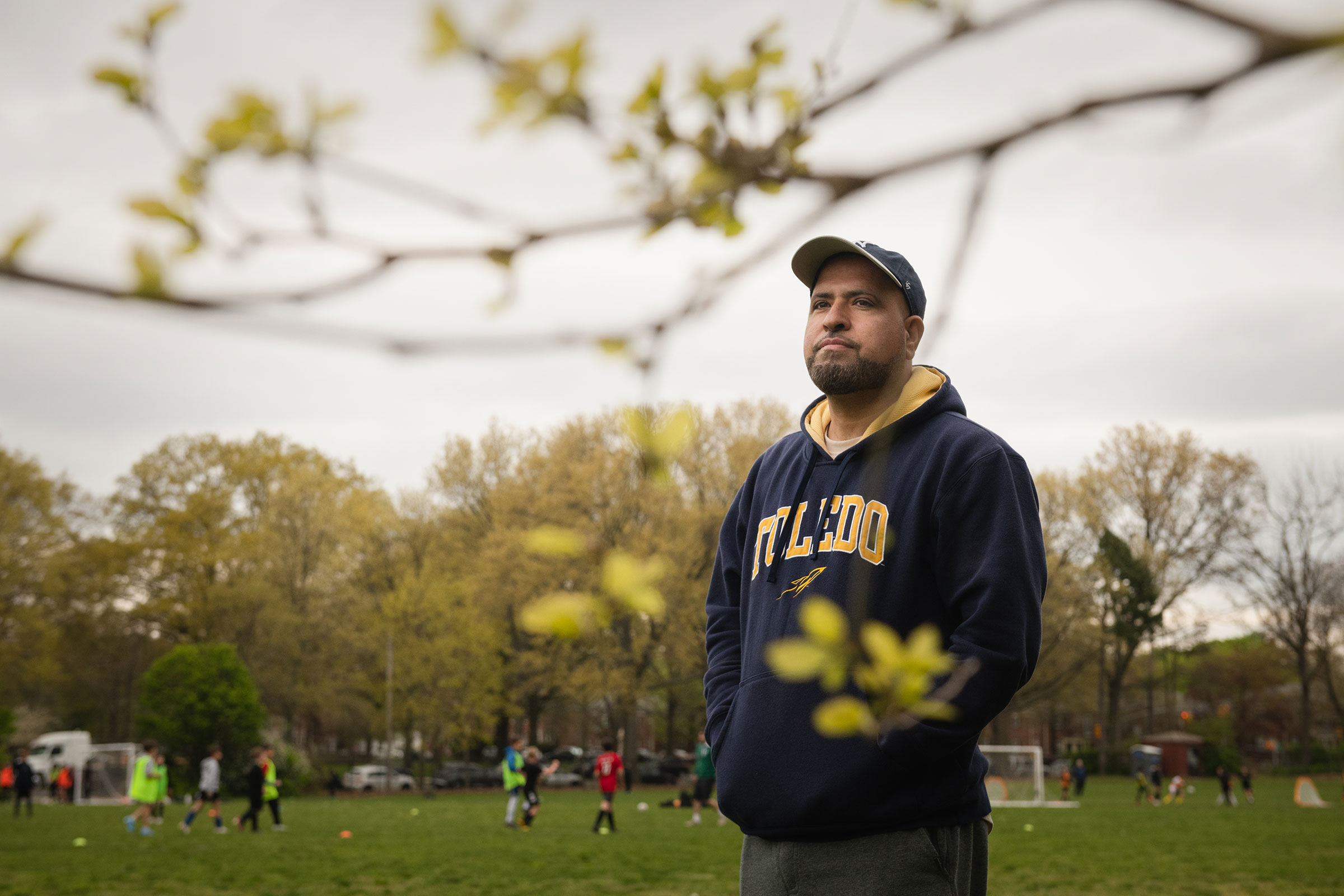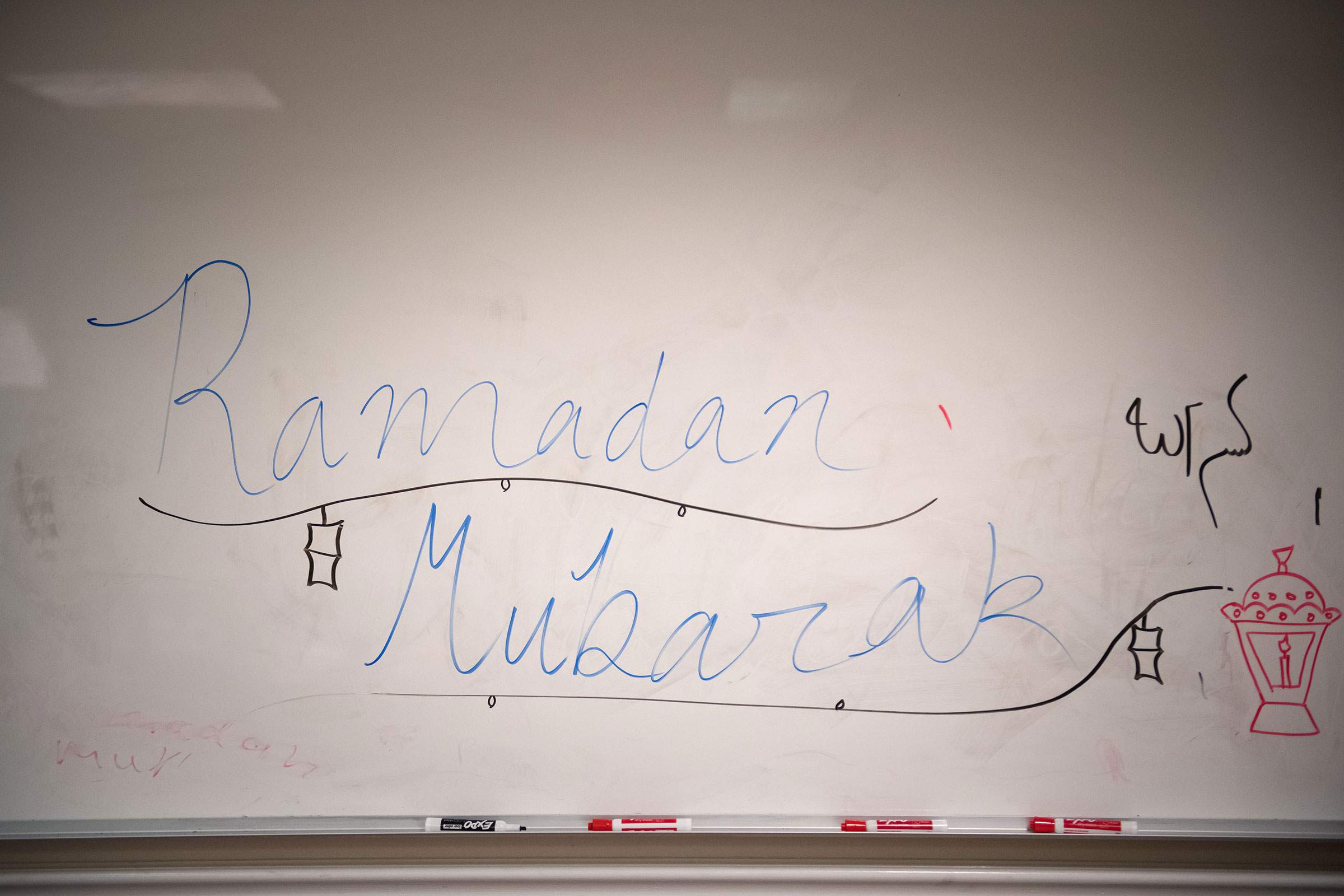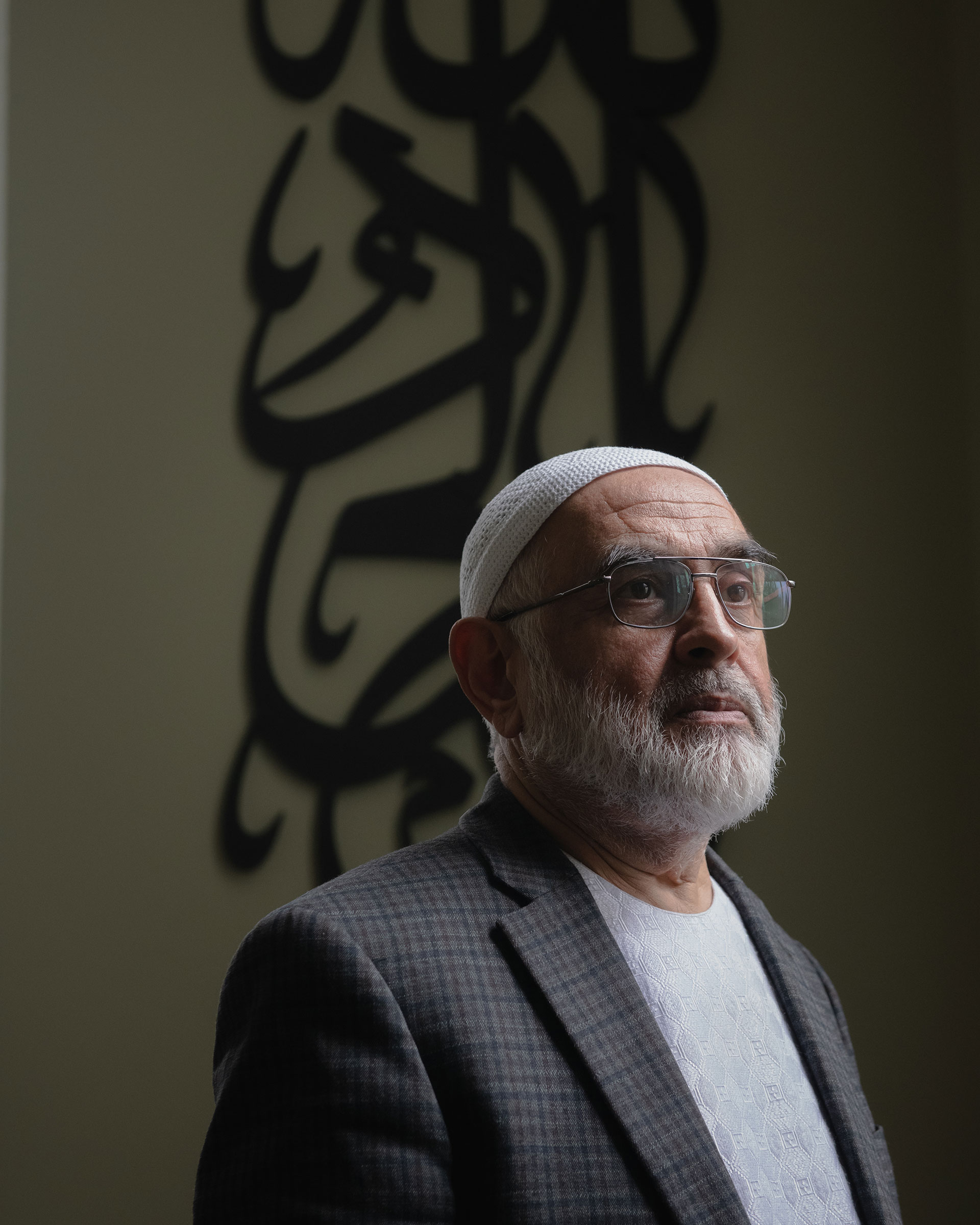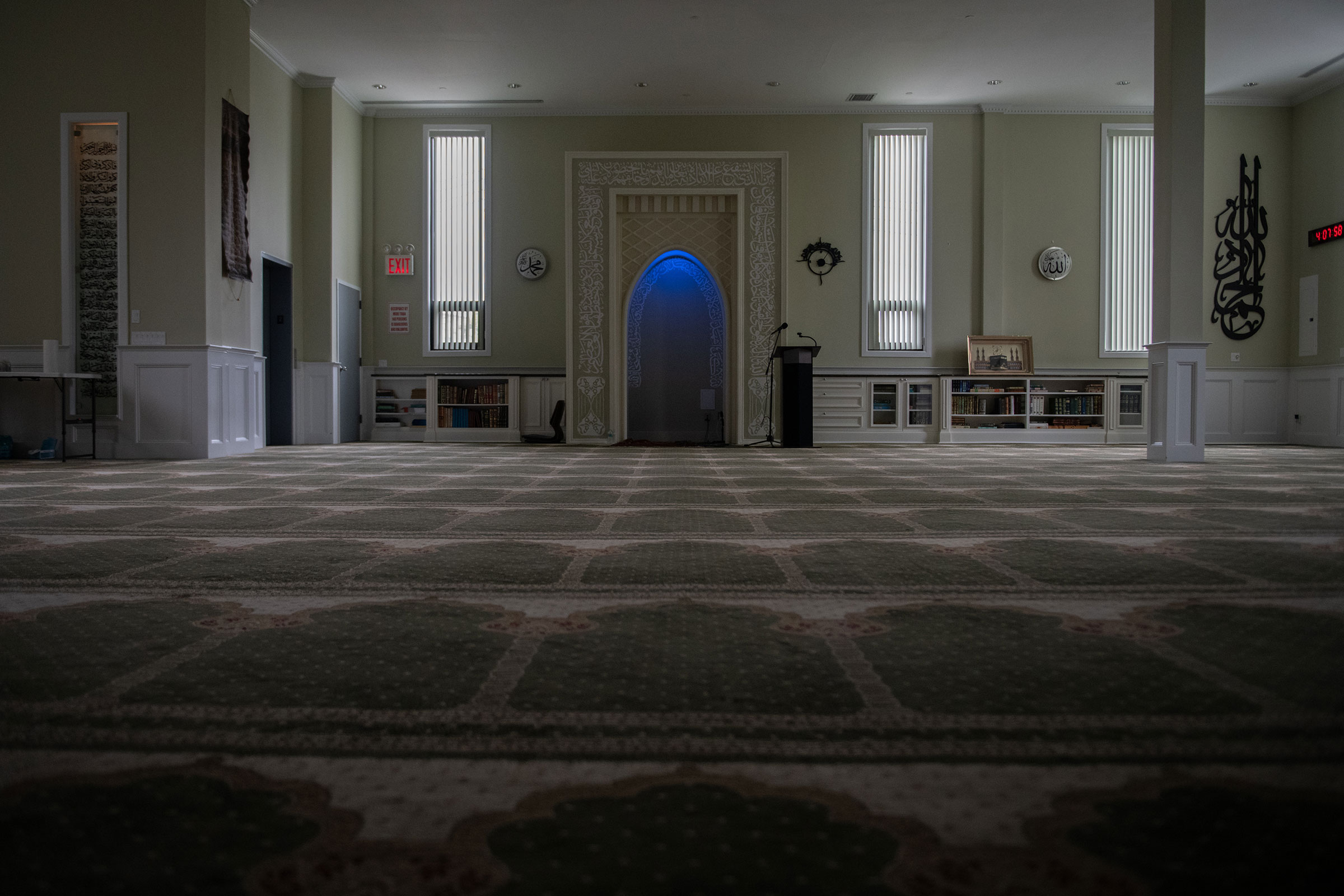The mood at the first Afghan mosque in New York was bittersweet on a recent Friday afternoon. Eyes glistening, a group of children listened intently as Imam Mohammed Sherzad talked about hope for their new lives in the United States.
The 14 children had scrambled unaccompanied onto evacuation planes during the hurried U.S. withdrawal from Kabul. Most left behind both their parents. Others had lost their fathers to the war and left behind their mothers and siblings. Of the 83,000 Afghans—nationals, U.S. citizens and legal permanent residents—spirited away as the Taliban seized the capital in August, about 1,400 were minors, starting a new life without an adult relative.
When the planes landed in Qatar, all evacuees were taken into U.S. government custody. Upon arrival in the States, they were referred to the Department of Health and Human Services’ Office of Refugee Resettlement, then transported to one of eight military installations across the country. That’s where many adults and families remain temporarily housed.
Of the children, some 1,300 have been reunited with family in the U.S., or placed in foster care or with sponsors. The children visiting the New York mosque were among the few still living in shelters. They were 13 boys and a girl, aged between 11 and 17. On that Friday, they had come to the Dar al Taqwa Islamic Center in Queens from Yonkers, N.Y., where they reside in a program for unaccompanied immigrant children called Passage of Hope.
In the U.S., “unaccompanied minors” are usually from Central America, and enter at the border with Mexico, often in numbers that challenge the immigration apparatus. In the federal fiscal year 2021, a record 122,000 unaccompanied children arrived in the U.S., almost all of them from the Latin American countries that have been at the center of the immigration debate for decades.
The Afghan children found themselves in the system established to accommodate that influx. And if their arrival offers a new prism on the experience of children arriving without adults, the young Afghans carry their own traumas—along with a profound sense of dislocation.


That’s what brought them to the mosque. Every Friday, a volunteer accompanies them on the 40-mile round trip from Yonkers to Dar al Taqwa. “The common culture that we have here is similar to one they had back home,” Imam Sherzad says. “When they see us and we are doing the same thing as they were, they feel free, they feel not disappointed because they see, oh, there’s a family here also.”
A tree-lined courtyard leads to red-and-cream brick buildings, and the way to the prayer hall is framed by rows of shoes on wooden shelves. “Being here and being away from their families, when they came into a mosque where they speak the same language, they were extremely happy,” says Yusuf Nasim, their volunteer escort. “Then when the prayer was finished, Imam Sherzad came in, sat down with the kids and showed them such love and understanding. They felt relaxed and calm.”
Nasim, 45, was 11 when his own family fled Afghanistan in 1983. When he met the children, not only was he the only Passage of Hope volunteer who speaks Pashto (one of the two main languages of Afghanistan, the other being Dari), he also understood their lives as children in a war zone. “You didn’t know if you were going to survive the next day,” he recalls.
The children remind him of his own son and daughter, who have parents and an extended family around them. “Sometimes I feel very, very sad,” he says. “I see my kids in them, and I look at them the same way. They have the same complexion, the same eye color, everything…” He says the kids had no idea where they were going when they boarded the flights out of Kabul. All they knew was that “these were American planes. It’s like: Come on in, there’s no seat. They’re standing, they’re sitting, whatever. Just like that.”

Passage of Hope is part of a private social services organization that began as an orphanage in 1831 and is now known as Rising Ground. It provides medical treatment, therapy and access to school. The staff also offers lessons in American culture and English, all while working to reunite unaccompanied immigrant children with their families or find a foster care placement in a home, which the shelter, of course, is not. The kids sleep in box-like rooms with small windows and Nasim recalls that, on the way back from the mosque, one might say: “Uncle, we’re going to jail again.” He reminds them that they’re also going to a place with a fridge full of food, clothes and school. But he understands the complaint.
“I have 100 Afghan parents on my WhatsApp. I can reach out to them and by tomorrow I will have 100 boxes of food and clothes,” he says. “But these kids don’t need that, they just need mental stability.”
Read More:Inside a Wisconsin Army Base Where Nearly 13,000 Afghans Await an Uncertain Future
Not that the resources of the community have always been put to immediate use. For over three months, the shelter had no staff who spoke an Afghan language. A supervisor would sometimes call Nasim concerned that the kids were distressed and not going to sleep. One child was so frightened of paramedics who came in an ambulance with sirens blaring after he accidentally cut his hand, that Nasim had to be called to calm his screams. Scared he would be taken away, the boy did not understand the medical staff were holding scissors to administer his stitches and not to cause him harm. In other cities, shelters have generated troubling reports of unaccompanied Afghan minors harming themselves or others, and of mistreatment by employees.
“The psychological impact to these children is extreme and they remain in fight-or-flight mode, even months later, here in the United States,” a Passage of Hope spokesperson tells TIME. “Many haven’t lived in a safe environment before, so forging trust and adapting to new routines is a long process.”

After the swift Taliban victory, the Afghans arrived on short notice, and the system is still catching up. The Office for Refugee Resettlement provided full-time translators to the shelter in January. Around the same time, Fatima Rahmati began volunteering, and was alarmed that the children had been there for around three months and yet so much was geared for Latin American clients. “The books were in Spanish, the staff spoke Spanish, even the quotes on the walls in their rooms were in Spanish,” she says. “The kids have even started learning a bit of Spanish. It’s funny in a way.”
On her next visit, Rahmati, whose family fled Afghanistan when she was just 3, arrived with Michelle Obama’s book, Becoming, in Dari, which one girl had asked for. She began to take the children on trips to museums and parks and to football games with help from Shahira Asadi Popal, who founded the New Jersey-based Afghan American Academy. They cooked Afghan food at the shelter with the children and during Ramadan sometimes broke their fasts there. “We have developed a strong rapport with the kids. I wish this was something all shelters could do”, Rahmati says.
“Do they not know how many Afghans live here?” asks Rahmati, who sits on the board of the rights organization Women For Afghan Women. Nasim and his brother distributed fliers when the children first arrived. “My role was to see them, to guide them, to build a little bridge between the community and them,” he says. “To let them know that there are people here, like myself, that they can come to and talk to and they can open up to and count on. That there’s a community here that cares about them and loves them, understands them.”
The mosque contains that community in more ways than one. Imam Sherzad arrived in Queens in 1985, aged 22, with wife Marzia and 10-month-old son Abdullah, his heart set on the Afghan community having a permanent Islamic center. The Afghan war at the time was against the Soviet Union, and with millions of Afghans fleeing to neighboring Pakistan and Iran, he was “sure people would start coming.” A site in Queens, a hub for Afghan arrivals, was identified and donations flooded in from around 500 families. The imam assumed what he was building would be temporary. “I was thinking maybe it would be 10 or 20 years and after that we could go back to our homeland,” he says. More than 30 years on, a 1,000-strong congregation attends.

At the time, the Taliban had been toppled by the U.S. after 911. After two decades, Afghans were surprised by the abruptness of the American departure, and the imam’s phone rings day and night. The incoming number begins 93, the country code of his homeland. “Everyone was calling and saying do something for us, how can we come out? How will we survive inside here? We are not safe!” he says.
More than half the population of Afghanistan experiences depression, anxiety or post-traumatic stress, according to Human Rights Watch. At the Yonkers shelter, the children have been processing their heartache by placing anonymous letters to the staff about issues they are facing in a special box placed outside the kids’ bedrooms. Nasim was often contacted by the facility’s staff to translate their notes.
One call to him was about a message written in Dari. “I speak Pashto so I had to send the note to someone who told me it said one of the boys was crying at night time on numerous nights,” he said. When Nasim talked to the boy, 11, he learned he was feeling lonely.
“So I asked him: “Do you want to go back to Afghanistan?” He said no.”
More Must-Reads from TIME
- Cybersecurity Experts Are Sounding the Alarm on DOGE
- Meet the 2025 Women of the Year
- The Harsh Truth About Disability Inclusion
- Why Do More Young Adults Have Cancer?
- Colman Domingo Leads With Radical Love
- How to Get Better at Doing Things Alone
- Michelle Zauner Stares Down the Darkness
Contact us at letters@time.com
